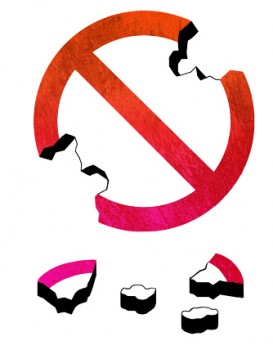The next generation
23 October 2009 | Columns, Tales of a journalist
Truth will not out, and neither will humour, if things cannot be freely discussed in the media without fear of giving offence, argues Jyrki Lehtola
One September weekend I was in the city of Turku watching Finland’s first ‘comedy roast’ being taped before a live audience for a television pilot.
Roast is a tradition originating in the US. At its centre is a celebrity guest of honour, the roastee. One after another, well-known comedians take the stage and for several minutes make fun of the guest of honour, on the premise that no subject is out of bounds and the more sensitive the topic, the more arrogantly it must be raised to the fore.
The task of the guest of honour is to be able to laugh at him- or herself as well as at the comedians, and at the end to propose a counter-roast, i.e. insult the insulters. Easy targets like reality TV stars are not chosen but rather prominent figures with extensive careers to their name, people for whom the mockery contains the same mix of respect and warmth as a stag night roast. A roast is a language game in which the most important thing is that everyone, including the audience, understands and accepts the rules.
![]()
Finland’s first roast in Turku went beautifully. The roastees, musician Jouni Hynynen and talk show hostess Maria Veitola, did not get angry. They were able to laugh at themselves. The comedians did not hold back but with a smile on their lips pounded the stars to a bloody pulp.
The hall was filled with people laughing uproariously. All of the participants in the language game appeared to be enjoying themselves.
That night, however, when people had had time to think about what is right and what is not, a moral hangover took hold. I met a couple of audience members who had enjoyed the roasts during the day. Now the lampoons no longer seemed as funny. They had mocked things that were too personal. They had mocked a woman. They had been too cruel. They had hit home. It wasn’t funny.
When laughter morphs into morality, internal political correctness has shoved its way in.
In the language game, the rules of which all parties have accepted, anyone can be ridiculed for anything. Mocking famous people is just one side of the roasts’ content. The other, more important aspect is that for a moment people in this country can speak without constraint about the most painful of things in ways we simply cannot speak about painful things here.
In their roasts, the comedians approached the guests of honour through topics like anorexia, sexuality, artistic creativity, appearance, the Winter War and even school shootings. It is both cliché and often untrue to claim that ‘nothing is sacred’, but in Turku we in Finland experienced a rare moment during which nothing appeared to be sacred and you could say whatever you wanted about anything.
The Finnish media is earnest and speaks with one voice. When the intent is to lighten up a newspaper, a cartoonist is paid to draw amusing political caricatures. The commercial television newscast always concludes with a ‘last laugh’, which has yet to make anyone laugh. The media has only one voice: an earnest, concerned voice that takes care not to offend any group or individual.
So you’re suffering because you were teased in school? You poor thing, come be interviewed. So you feel as if your father was somewhat distant? However will you survive? Let’s hug and make a documentary. You say your parents divorced when you were 20? Of course I understand that it still hurts 30 years later, and certainly this is the place for a pain-ridden personal portrait.
Too much understanding suffocates creativity and kills laughter. If you can’t mock anything and everyone has to share the same compassionate understanding about everything, the only comedy that remains is what is called ‘warm humour’, and anyone who appreciates humour at all, knows that warm humour is an oxymoron.
First in Finland one generation was careful, as neighbour of the Soviet Union, not to say anything at all about that neighbouror about its own self that might insult that neighbour.
Then came the next generation, which no longer carried the weight the Soviet Union on its shoulders. But nevertheless a single way of thinking continued to reign in the land. Whether it’s a question of tobacco laws, Big Brother or public transportation, in this country a single way of thinking reigns: courteous, cautious, and concerned in a pleasant way for the future.
In Turku a bold new generation without constraints has now stridden onto the stage. They saw a thin woman and yelled ‘anorexic’ at her. Not because anorexics deserve to be mocked, but because they wanted to see what would happen when they talked about things directly.
First we all burst out laughing. A few hours later, too many of us said they shouldn’t have said those things.
Often it’s the first reaction one should believe.
Translated by Jill G. Timbers
Tags: media
1 comment:


25 October 2009 on 10:26 am
I don’t think “warm humour” is an oxymoron; I do think “direct humour” – recommended by you – is, Mr Lehtola.